Urbanisation refers to the development of towns. It also refers to an increase in the number of people living in urban areas. The smallest urban centres are very many in number while large towns or cities are very few and far apart.
This map shows the location of some of the major towns in Kenya.

It is found in the central part of the country is the largest city in Kenya. Its name comes from a Maasai word meaning “a place of cool waters”. The city begun as a camp for the Kenya-Uganda Railway workers in 1899. It gave the workers an opportunity to replenish their food and water supply. Because it was in the highlands, its climate was attractive to the workers and later, Nairobi became the capital of the British East Africa Company.

a) the capital city of Kenya
b) the headquarters of all government ministries
c) an administrative centre for Nairobi Province
d) an important industrial centre
e) a cultural centre with the National Museum and Bomas of Kenya showing different aspects of the Kenyan culture
f) an important residential centre with many housing estates
g) a commercial centre with shopping malls and business centres
h) a recreation centre
i) a tourist centre with the National Museum, snake parks and the Nairobi National Park near the city
j) an education centre with schools, universities and training institutions
k) a centre for transport and communication with the Jomo Kenyatta International Airport located here. Local and international media houses are also located here.
Mombasa is one of the oldest towns in Africa which started off as a trading port along the Indian Ocean Coast. It is the second largest city and a leading port. The old town is found on Mombasa Island and from here it has expanded to the mainland. The island is linked to the mainland by Likoni Ferry, Nyali Bridge and Makupa causeway. The port at Mombasa is very busy and welcomes ships from all aroundt the world.
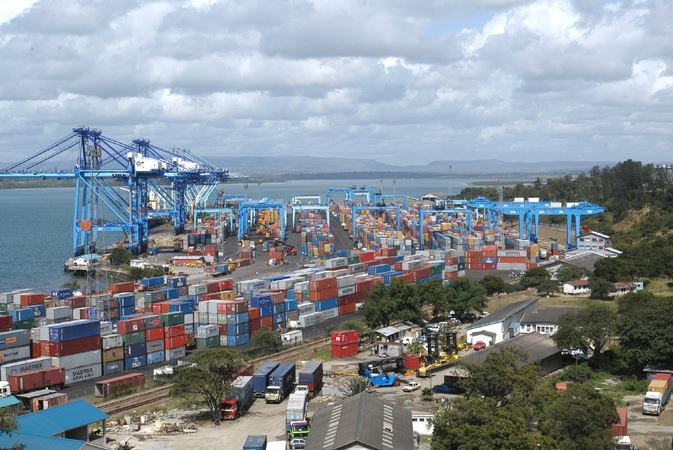
Mombasa is:
a) an important port along the eastern coast of Africa. It has a natural harbour and can handle many large ships on the Indian Ocean
b) linked to the interior of Kenya and other Eastern African countries by railway and major roads
c) an administrative headquarters for Coast Province
d) a tourist and recreational centre with sandy beaches and hot sunny climate.
e) an important industrial centre with an oil refi nery at Changamwe and a cement factory at Bamburi
f) a historical city with important sites like Fort Jesus and Vasco da Gama Pillar nearby
g) a cultural centre with rich Swahili culture
h) an important residential area
i) a commercial centre with many clearing and forwarding companies located here
j) an education centre
k) a centre for transport and communication with the Moi International Airport located here. Local and International media houses are also located here
l) an important fi shing centre.
Kisumu is the leading inland port in Kenya. It is the third largest city in the country. Its origin is linked to the building of Kenya – Uganda railway which reached the shore of the lake in 1901. Kisumu was originally known as Port Florence.
Here we see the train which still runs between Kisumu and Nairobi.
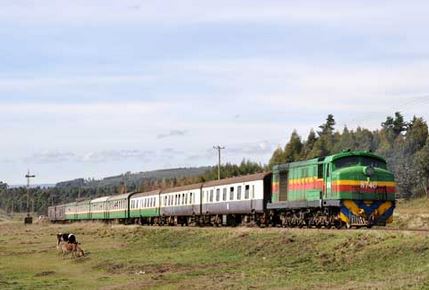
Kisumu is:
a) the largest inland port in Eastern Africa found in Lake Victoria. It has a sheltered natural harbour
b) linked to the neighbouring countries by ships and boats
c) an administrative headquarters for Nyanza Province
d) a tourist and recreational centre
e) an important industrial centre in Western Kenya with fi sh processing factories
f) a cultural centre with the rich Luo culture
g) an important residential area
h) a commercial centre for Western Kenya
i) an education centre
j) a centre for transport and communication with an airport located here.
Nakuru began as a collection centre for agricultural products from settler farms. It lies in a rich agricultural land where large wheat and dairy farms are found. The picture of Nakuru shows the whole town, as seen from a helicopter.
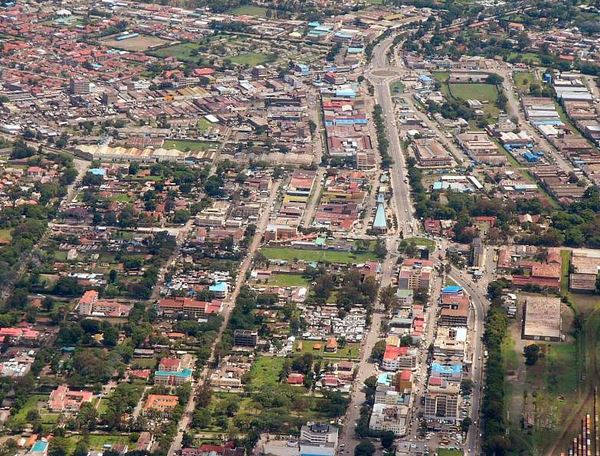
Nakuru is:
a) an important tourist area with the Lake Nakuru National Park nearby. Lake Nakuru has a famous bird Sanctuary that protects breeding grounds for fl amingoes
b) an education centre with various schools, colleges and Egerton University
c) a centre for transport and communication with an airstrip
d) linked to Uganda by road
e) an important industrial centre with food processing factories. It has a KCC factory
f) an important residential area.
Like Nakuru, Eldoret began as a collection centre for the agricultural products from the settler farms. It is in an area that has rich agricultural land with large wheat, maize, horticulture and dairy farms.
Here is a photograph of Eldoret in 1964, as it began to grow and urbanise.
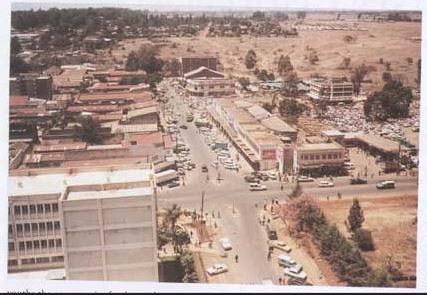
Eldoret is:
a) an important industrial centre with food processing factories. It has a KCC factory
b) an important commercial centre in the Rift Valley
c) a centre for transport and communication with an international airport located here
d) an important residential area
e) an administrative centre for the Uasin Gishu District
f) a cultural centre with the rich Kalenjin culture.
g) an educational centre with Moi University
Thika lies to the North - East of Nairobi. It is the sixth largest urban centre in Kenya. It started off as an agricultural marketing centre and today it is a leading industrial centre - hence its nickname "the Birmingham of Kenya".

Thika is:
a) an administrative headquarters for Thika District.
b) an important industrial centre with motor assembly and food processing industries
c) an important tourist centre with Chania Falls and Fourteen Falls nearby.
d) an important commercial centre in Central Province.
e) an education centre with Jomo Kenya University of Agriculture and Technology close by.
f) a centre for transport and communication with an airstrip.
Kampala is:
a) a capital city of Uganda
b) an administrative centre for the country
c) a centre for transport and communication
d) an educational centre with Makerere University, one of the oldest centres of educational excellence in Eastern Africa
e) a tourist centre with museums and artefacts on the old Kingdoms
It is an important inland port on Lake Victoria. It is located close to the Owen Falls Dam where hydro-electric power is generated. It is an important industrial centre with copper refinery, breweries, as well as tobacco and fish canning factories. It is close to the source of River Nile, that is, Lake Victoria. As a result, it is an important tourist attraction. It is an agricultural colleting centre.
Dar es Salaam is:
a) the largest city in Tanzania
b) at independence, it was the capital city of Tanzania
c) it is an important port
d) it is linked to Zambia by the Tazara Railway which is used to export copper
e) it is a commercial centre
f) it is a tourist centre with sandy beaches and cultural attractions
g) it is a historical centre
h) it is a transport and communications centre.
Location of major cities in East

a) Dodoma is located in the Central part of Tanzania.
b) it has recently been made the new capital city for Tanzania. This has helped to open up the hot and dry interior of the country which was underdeveloped for a long time.
c) It is an administrative centre of the country
d) It is a centre for transport and communication.
e) It is a residential centre.
a) it started as an agricultural market centre.
b) it is located between the Kilimanjaro and Meru mountains which have fertile volcanic soils for farming.
c) it is an administrative centre.
d) it is a centre for transport and communication with a large airport.
e) it is a residential centre.
f) it is an industrial centre with food processing and meat canning industries.
g) it is the headquarters for the East African Community.
a) it is the largest city in Ethiopia.
b) it is the capital city of the country.
c) it is a commercial centre.
d) it is a tourist centre with many museums
and beautiful scenery.
e) it is a historical centre with many historical sites and museums.
f) it is a transport and communications centre.
1. The government is encouraging investors to locate some industries in rural areas to attract people to work there.
2. Facilities and living standards in rural areas are being improved so that people can be attracted to live there.
3. Slum upgrading projects have been initiated, where good houses are built and slum dwellers moved to occupy them.
4. Local authorities are improving garbage collection and educating people on the importance of keeping the environment clean.
5. Charity homes are being set up for street families to discourage them from begging on the streets.
6. Improving street lighting and increasing police posts in order to reduce incidences of crime.
7. Effective urban planning to contain the ever expanding urban population.
8. Discouraging rural-urban migration to reduce congestion in the towns.
9. Building of bypass like in Nairobi to ease traffic in major highways.
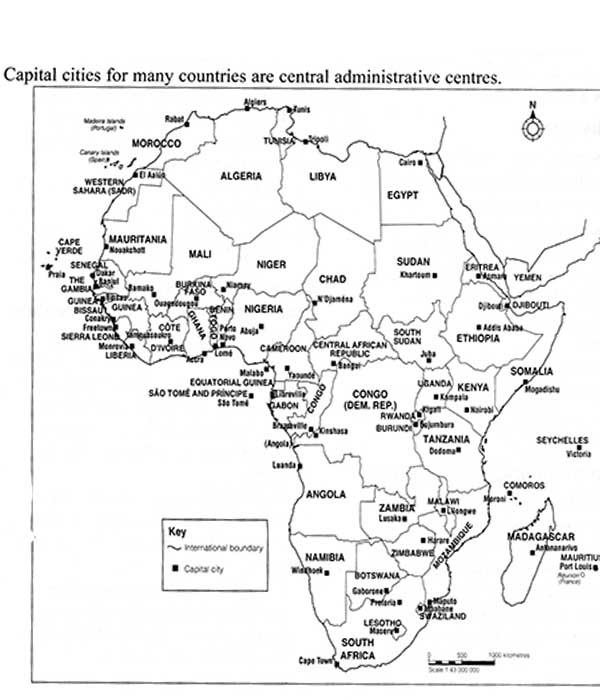
Trade
This is the main reason for the growth of many towns in Africa. This happens when traders build commercial buildings.
Industries
When people move to areas with industries in search of job, their diverse needs, for example; housing, trade, communication, transport and hospitality lead to development of towns.
Minerals
mining sites attract people in search of jobs and trade quickly turning them into towns.
Administration services
Districts, provincial and national headquarters attract people who need these services therefore, turning them into towns.
Infrastructure
Road junctions, railway terminus and others quickly turn into towns. Areas with good transport and communication facilities quickly grow into urban centres.
Political factors
Political decisions to move capital cities and government headquarters have led to the development and growth of towns.